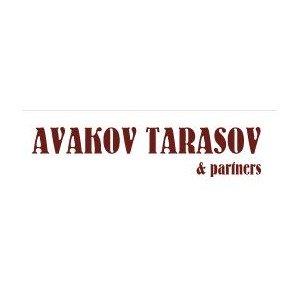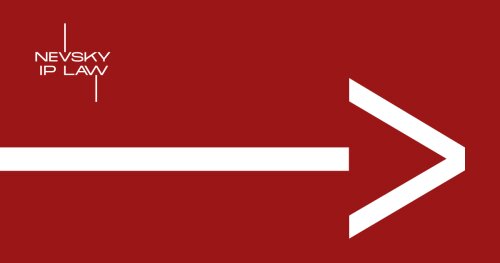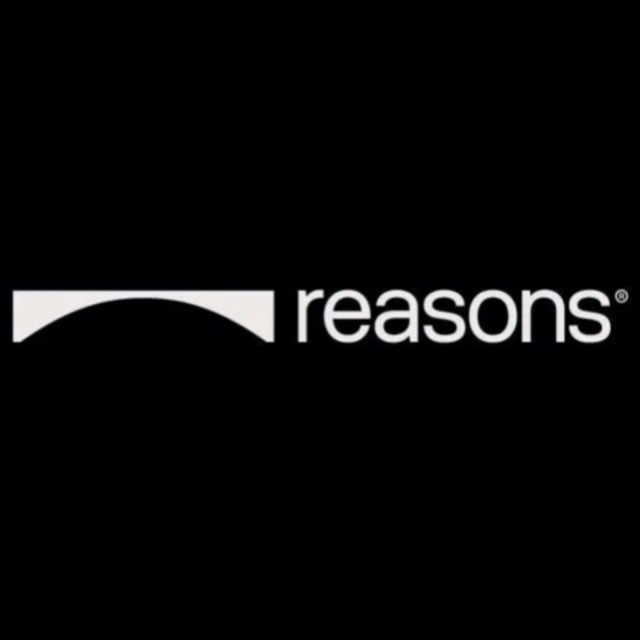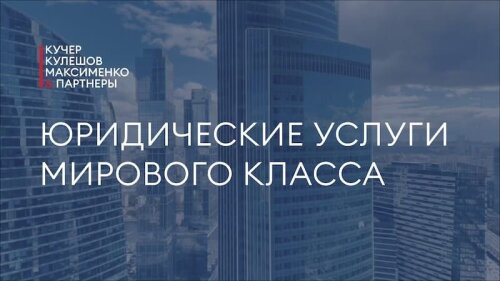Best Media, Technology and Telecoms Lawyers in Russia
Share your needs with us, get contacted by law firms.
Free. Takes 2 min.
Or refine your search by selecting a city:
List of the best lawyers in Russia
About Media, Technology and Telecoms Law in Russia
Russia's media, technology, and telecommunications sectors are governed by a complex array of laws that balance state interests, innovation, and individual rights. These sectors are fast-evolving, influenced by rapid technological advancements and international regulations. Media law often interlinks with freedom of speech issues, while technology law grapples with data privacy and cyber security. Telecommunications, a vital economic component, is intensely regulated to ensure security and coverage, while aligning with global standards. Together, these laws shape how businesses operate and how individuals interact with technology and media content in Russia.
Why You May Need a Lawyer
Legal expertise in media, technology, and telecommunications may be required in several scenarios. Businesses navigating complex regulatory landscapes might face compliance issues, or need guidance on licensing and intellectual property rights. Individuals or companies may require assistance with contract disputes or cyber security breaches. Moreover, media companies often seek legal advice to address defamation claims or censorship disputes. Understanding these intricate legal frameworks is essential to avoid fines and ensure compliance, making legal counsel indispensable in these sectors.
Local Laws Overview
Russia's legal framework for media, technology, and telecommunications includes several key legislations. The Federal Law on Mass Media governs print and digital media operations, focusing on issues like censorship and licensing. The Personal Data Law regulates data processing activities, emphasizing personal data protection and privacy. The Yarovaya Law imposes data retention and surveillance requirements on telecom operators, significantly impacting operational practices. Additionally, the National Technology Initiative outlines policies for technological development, while the Federal Telecommunications Law regulates network distribution and usage in Russia. Staying abreast of these dynamic laws is crucial for compliance and operational efficiency in Russia.
Frequently Asked Questions
What are the main regulatory bodies governing telecoms in Russia?
The Ministry of Digital Development, Communications and Mass Media of the Russian Federation, along with the Federal Service for Supervision of Communications, Information Technology and Mass Media (Roskomnadzor), are the primary regulatory entities overseeing telecommunications in Russia.
How are data protection laws implemented in Russia?
Data protection in Russia is principally governed by the Personal Data Law, which mandates data processing activities to ensure individuals' privacy rights. Organizations must adhere to data localization requirements and comply with strict data protection protocols.
What are the implications of the Yarovaya Law for telecom companies?
The Yarovaya Law obliges telecom operators to store data and provide it to state authorities upon request, imposing substantial compliance and operational costs due to its extensive data retention and surveillance directives.
Can foreign media operate freely in Russia?
Foreign media faces several restrictions and often requires special approval to operate in Russia, aligning with national safety and security priorities. Laws mandate specific disclosure practices and allow for potential revocation of permissions.
How does Russia address cyber security threats?
Russia enforces stringent cyber security measures, including the National Strategy on Information Security, aiming to protect critical infrastructure and combat cyber threats with enhanced surveillance and data protection standards.
Are there legal restrictions on internet usage in Russia?
Yes, Roskomnadzor monitors and regulates internet usage, emphasizing content control and access restrictions to maintain public order and national security, often leading to website blockages and restrictions.
What constitutes defamation under Russian media laws?
Defamation involves disseminating false information damaging an individual's reputation. Russian laws permit legal action against individuals or entities responsible for such activities in media platforms.
How can technology companies protect their intellectual property in Russia?
Companies should register patents, trademarks, and copyrights with the Russian Federal Service for Intellectual Property to safeguard their technological innovations and creations effectively.
What are the licensing requirements for telecom operators?
Telecom operators must obtain licenses from Roskomnadzor, detailing operational scope, technical specifications, and adherence to national security and compliance standards accordingly.
How is freedom of speech regulated in Russian media?
While the Russian constitution guarantees freedom of speech, various laws impose limitations to prioritize national security, public order, and protect moral standards, often restricting certain content types.
Additional Resources
Individuals seeking further assistance or information can consult relevant governmental bodies such as the Ministry of Digital Development, Communications and Mass Media and Roskomnadzor. Non-governmental organizations and industry groups like the Association of Communications Agencies of Russia (AKAR) may also provide valuable guidance and support in navigating the complex legal landscape of media, technology, and telecommunications in Russia.
Next Steps
If you need legal assistance in media, technology, and telecommunications, it is advisable to contact a specialized lawyer or legal firm with expertise in these domains. Research potential legal counsel, focusing on their experience and understanding of Russian regulations. Schedule a consultation to discuss your specific situation, ensuring you receive tailored advice and guidance to navigate legal challenges effectively and ensure compliance with Russian laws.
Lawzana helps you find the best lawyers and law firms in Russia through a curated and pre-screened list of qualified legal professionals. Our platform offers rankings and detailed profiles of attorneys and law firms, allowing you to compare based on practice areas, including Media, Technology and Telecoms, experience, and client feedback.
Each profile includes a description of the firm's areas of practice, client reviews, team members and partners, year of establishment, spoken languages, office locations, contact information, social media presence, and any published articles or resources. Most firms on our platform speak English and are experienced in both local and international legal matters.
Get a quote from top-rated law firms in Russia — quickly, securely, and without unnecessary hassle.
Disclaimer:
The information provided on this page is for general informational purposes only and does not constitute legal advice. While we strive to ensure the accuracy and relevance of the content, legal information may change over time, and interpretations of the law can vary. You should always consult with a qualified legal professional for advice specific to your situation.
We disclaim all liability for actions taken or not taken based on the content of this page. If you believe any information is incorrect or outdated, please contact us, and we will review and update it where appropriate.
Browse media, technology and telecoms law firms by service in Russia
Russia Attorneys in related practice areas.
Browse media, technology and telecoms law firms by city in Russia
Refine your search by selecting a city.















